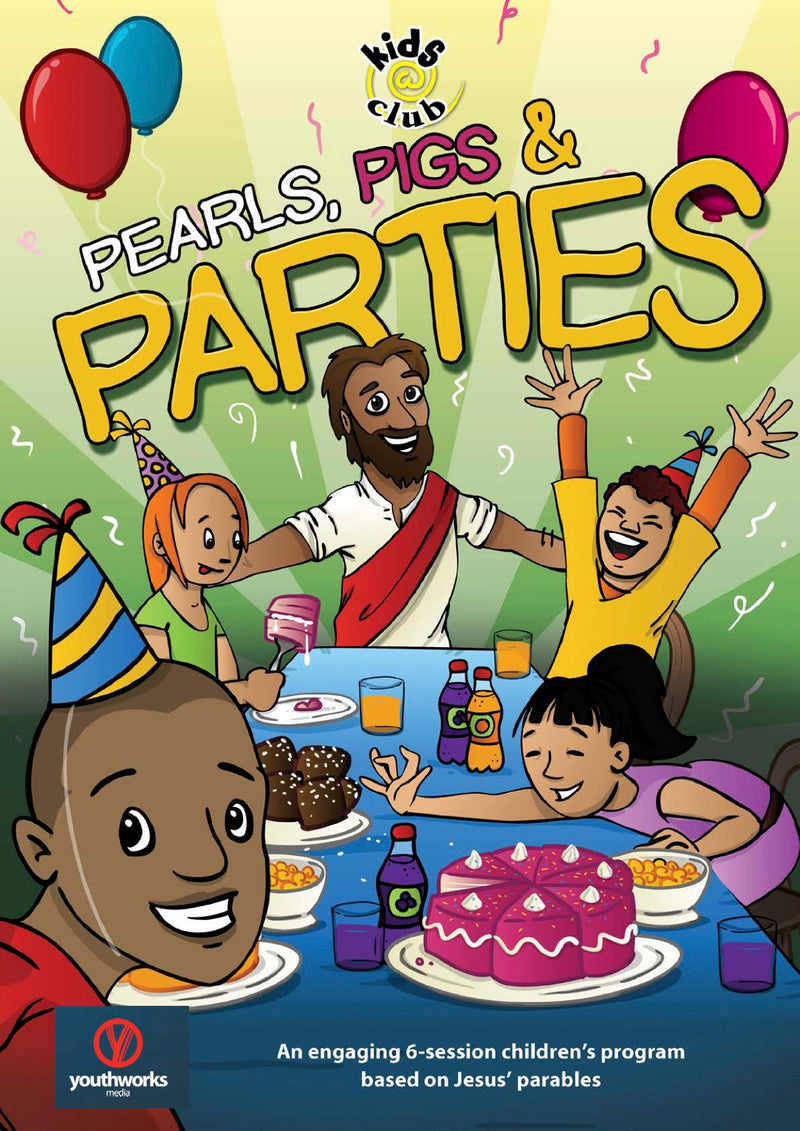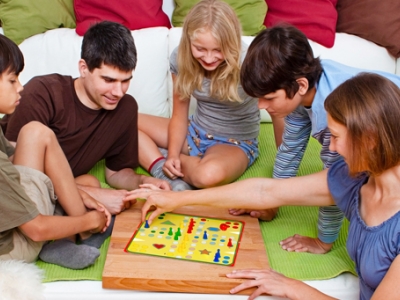
In a screen-based world, our children need to play!
Christian solutions for ‘The Anxious Generation’.
The great experiment
In the introduction to his new book, The Anxious Generation: How the Great Rewiring of Childhood Is Causing an Epidemic of Mental Illness, Jonathan Haidt posits an absurd hypothetical:
‘Suppose that when your first child turned ten, a visionary billionaire whom you’ve never met chose her to join the first permanent human settlement on Mars.’
He goes on to describe that this experiment is being performed on children despite the fact that there is no research to show what long-term effects that exposure to Mars will have on them.
Haidt then adds that you didn’t give consent for this. In fact, your child signed herself up without your knowledge. And, despite the proven dangers of the experiment, the company running the program has no viable proof-of-age check. Children can tick a box and say they have parent permission and off they go to another planet!
Sounds insane, right?
Yet Haidt argues that something very similar happened to the generation of children born after 1996 (known as Generation Z) and the children born after 2010 (known as Generation Alpha). Haidt calls this the ‘great re-wiring of childhood’, where children transitioned from a predominantly play-based childhood to a screen-based childhood.
Haidt charts two simultaneous changes that took place over this time: over protection in the real world and under protection in the virtual world. Haidt claims that these are the main contributors which have led to a precipitous rise in anxiety (and other mental health issues) in Generations Z and Alpha when compared to the generations that came before them.
A Christian solution
What is fascinating to me as a Christian mum is that Haidt’s solutions have much in common with Christian community. Haidt’s criticism of screentime is that it’s disembodied, asynchronous (that is, not coordinated in time with the people around you), and takes place in short-lived groups that are easily entered and exited.
Whereas Christian community is the opposite. When children come to church, they play in person. They play simultaneously. They are part of a group that their families have committed to, ideally for the long-term.
Haidt makes a point that this kind of embodied, synchronous, long-term human interaction is far superior, and has been part of the fabric of human society since the very first civilisations.
Haidt makes a case for the rise in mental health harms wrought by screens, and his book is well worth reading. In the next two articles, I want to consider how we can help our children and their friends who are being raised in a screen-based world, on ‘Mars’. In this article, we’ll think about play and in the next article, safety on screens.
The impossible option
Of course, one option to radically reduce mental health harms in children is to have a screen-free household—but that’s just not practical for most of us. Even as I write this, my sons (13 and 9) are watching a cartoon together on an iPad in the other room, having just completed screen-based homework on Google Classroom and Mathletics!
If a screen-free household isn’t the solution, what can we do to help our children spend more time in play and less time on screens?
The play option
For generations, play was seen as just ‘something kids do’. However, recent research has shown why play is essential for development. Haidt cites psychology professor Peter Gray who explains how all mammals use play as the testing-ground to learn how to interact with their world. The problem is, over the last 40 years we have reduced opportunities for children to play.
I can’t pretend that my family has any of this sorted. We’re on a journey in this Martian online landscape as much as anyone. But below are a few ideas I wanted to try, and perhaps you might like to as well.
Play at home
Think back over your last week: how much time do you estimate your children spent in unstructured play? It’s hard, I know. Looking at my family’s schedule, between after school care, music lessons and sport, most of the afternoons are pretty full!
But what options are there for unstructured play at home?
One of my sons finds this easier than the other. He will happily choose to go into his room and play with his Lego (the amount of Lego in our house rivals the brick pit on Lego Masters!). Maybe you have children like him—always happy to find some way to entertain themselves.
But maybe you have children like my other child who is the complete opposite. Time alone is one of the hardest things for him to bear! Through trial and error, I find that giving this son a list of ‘play’ options is helpful: drawing, crafting, playing with the dog, patting the bunny and so on.
Knowing that this child craves interaction, I often have to pause my own ‘alone time’ and play boardgames with him—'Lord of the Rings Monopoly’ is a family favorite, although shorter games like ‘Too Many Monkeys’ or ‘Sushi Go!’ work well, too.
Lately the boys have become old enough to walk to the local park and play soccer together. I’m looking forward to them going on more adventures out in the world (something Haidt strongly recommends).
My children are no doubt different from yours. The question is: do they have opportunities to play?
Play with friends after school
Playing with friends after school was part of my family’s routine when I grew up. My brother was never home between the hours of 3.00pm and 6.00pm. He’d go straight from school to the local soccer field and kick a ball around with his mates for hours. For me, I remember having permission to walk between my house and my friend Diane’s at the end of our street.
What about you? How often do your children have friends over to play? And when they do, are they playing something other than computer games?
In our house, computer game days are only Fridays, Saturdays and Sundays, so my boys’ friends know that if they come over on another day, the play will be screen free (which usually means an epic Nerf-Gun war!).
Play in organised activities
I am not a sporty person. But I understand why sport is valuable for my children. The Australian Sports Foundation lists the following benefits: it increases social connectivity, enables diversity of friendship groups, teaches resilience, builds confidence and reduces the likelihood of depression and anxiety.
I have a friend whose son is signed up to three sports simultaneously. When I asked him why, the answer was simply ‘It’s the easiest way I can think of to keep him off screens’.
Perhaps this is going a bit further than most parents, but there definitely is wisdom in getting kids out of the house, socialising, learning new skills and building resilience!
Play at church
I love my church’s Kids’ Club—it’s been a wonderful way to connect my sons’ friends with church community. Every Friday, we try to fill up our spare car seats with friends. At Kids’ Club, the children are given opportunities for both structured and unstructured play, they get to meet invested Christian teens and adults and they also get to learn from God’s word.
Before and after church is another chance for kids to have unsupervised play. Sure, the parents are nearby, but often we’re chatting to one another. This is a good thing! Not only for our relationships, but also for our children as they learn to get along.
I'm blessed to belong to a church with a large, safe area for kids to play in after church. If your church doesn’t have such a space, perhaps some parents might meet up in a local park after church?
In all of this we need wisdom. As I reflect on my many parenting mistakes, and feel daunted at the task that lies ahead, I’m comforted by God’s promise:
If any of you lacks wisdom, you should ask God, who gives generously to all without finding fault, and it will be given to you. (James 1:5)
In my next article, I will reflect on some of the limits that Haidt encourages parents to place on screens and reflect on my own journey parenting my ‘Martian’ children!
---
Before training for ministry, Jenn taught courses in English Literature, History and Cultural Studies at universities in Australia and China. Jenn's ministry passion and experience is in SRE. She lives and serves in the South of Sydney with her husband and two children.

Pearls, Pigs & Parties
Pearls, pigs and parties aims to teach children aged 5 to 11 that being a follower of Jesus and part of God’s kingdom is more valuable than anything else. This six-part series culminates in a fun party, where family and friends are also encouraged to accept Jesus’ invitation to the ultimate celebration in heaven with God’s people.
For more articles from Growing Faith, subscribe to our monthly e-newsletter.
To hear about the latest books and resources from Youthworks Media, subscribe here.








